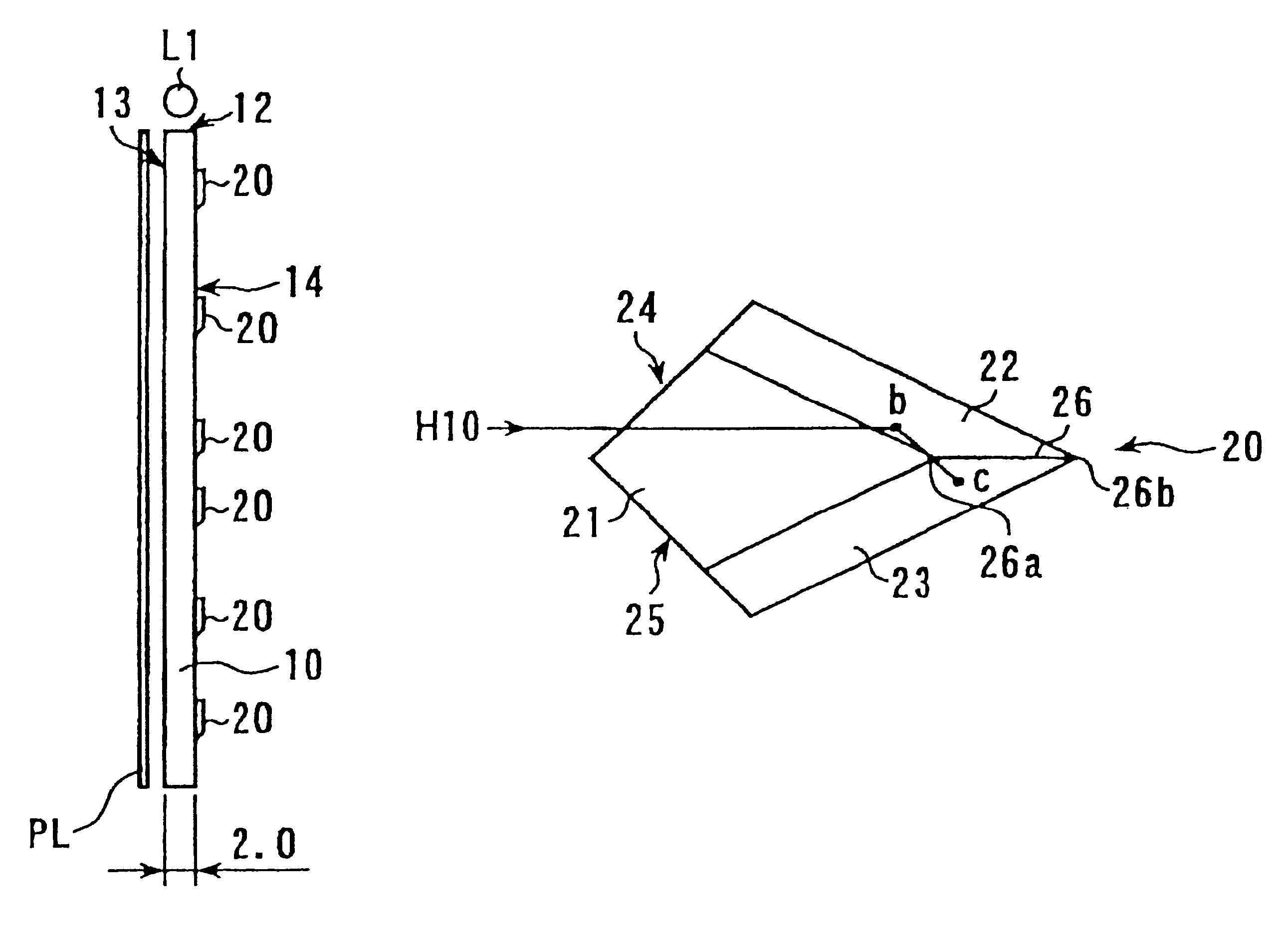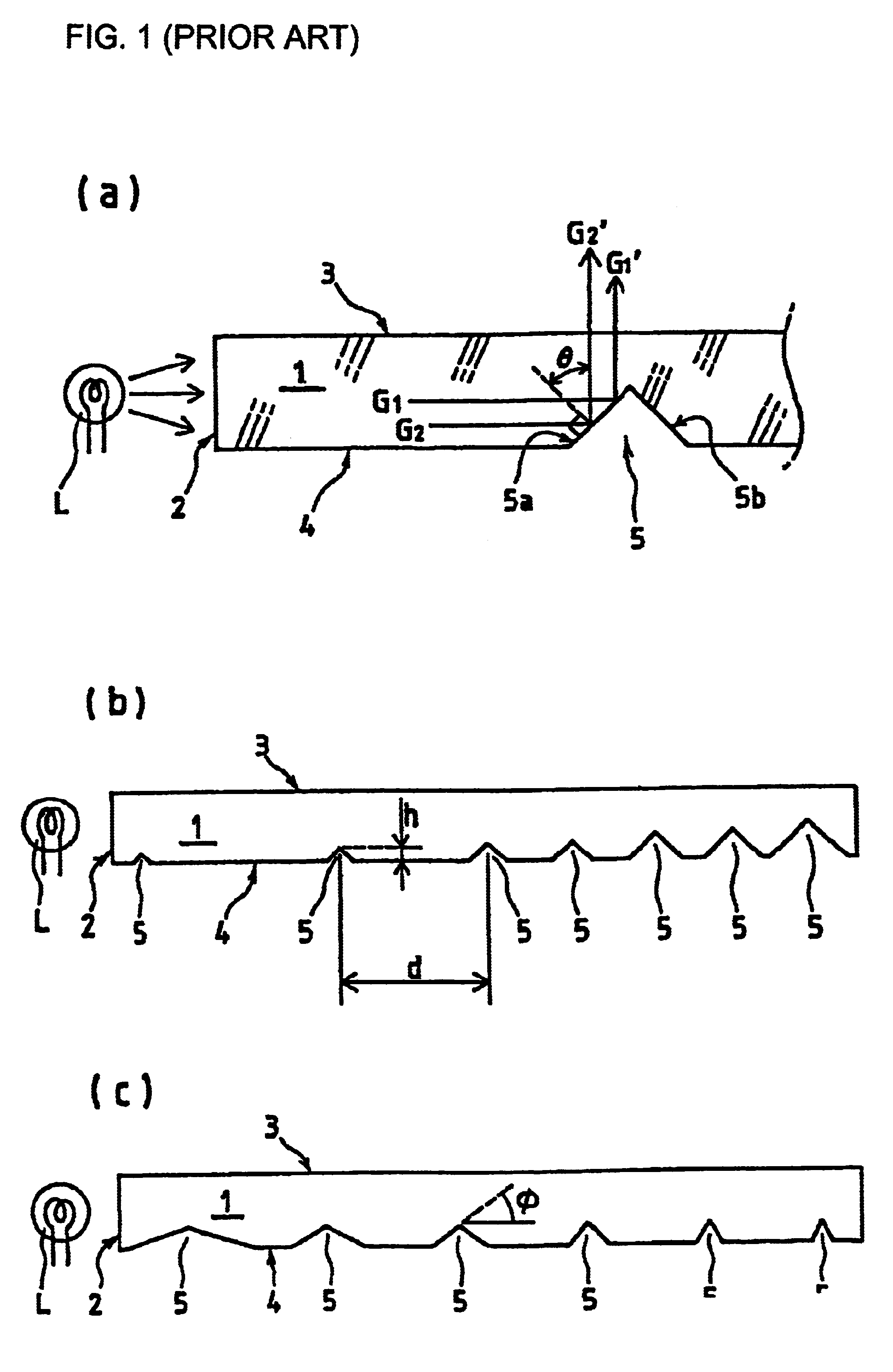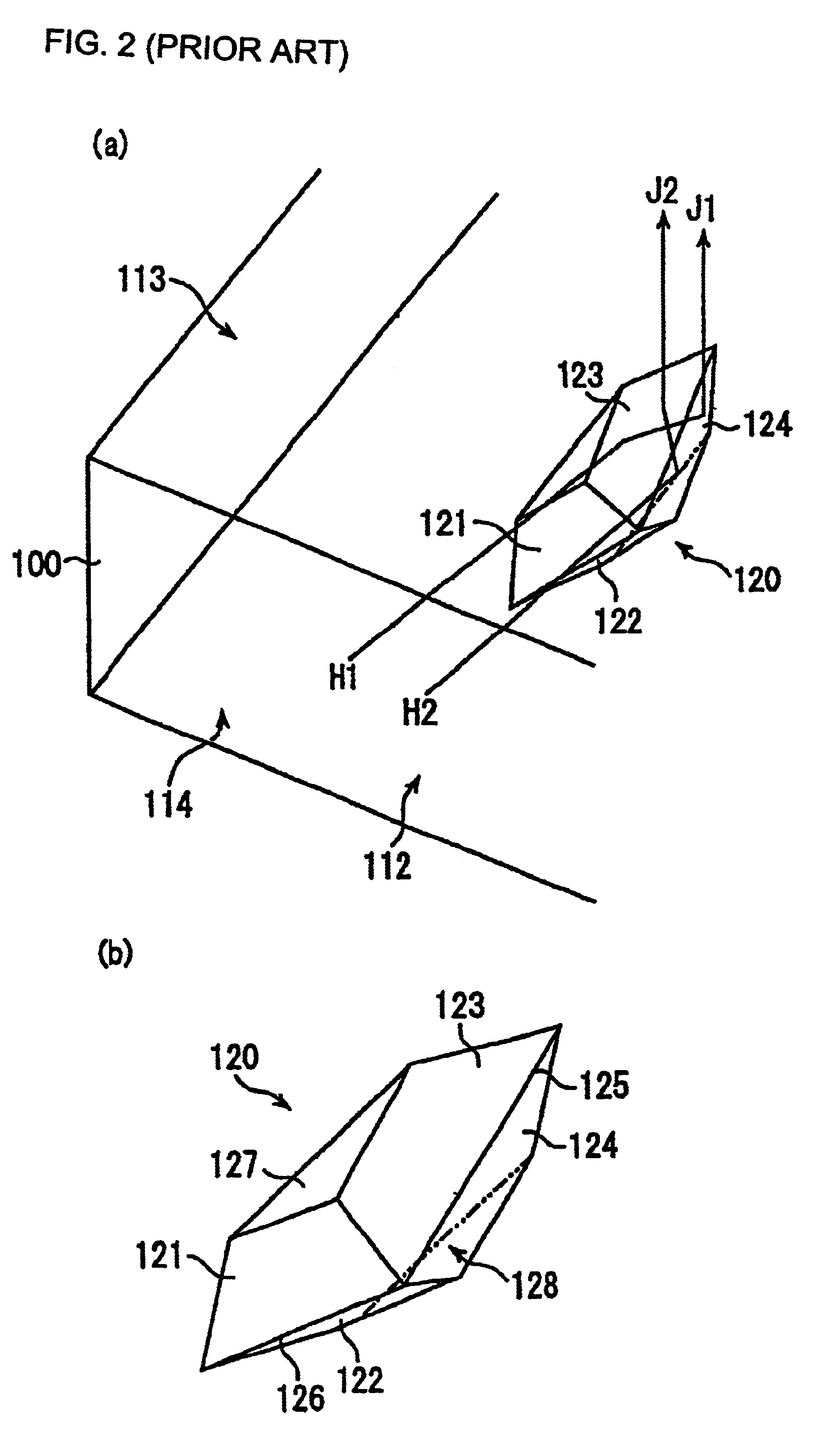Light guide plate, surface light source device and liquid crystal display
a surface light source and light guide technology, applied in the direction of optical light guides, instruments, optics, etc., can solve the problems of reducing light energy efficiency, hardly providing uniform and effective emission, and delivering unsatisfactory brightness, so as to achieve easy control and heightened applicability to front-lighting arrangements
- Summary
- Abstract
- Description
- Claims
- Application Information
AI Technical Summary
Benefits of technology
Problems solved by technology
Method used
Image
Examples
first embodiment
(1) First Embodiment
FIGS. 4a and 4b illustrate an outline of the first embodiment in accordance with the present invention. FIG. 4a is a plan view from the back face side of a light guide plate and FIG. 4b is a side view from the left side in FIG. 4a.
Referring to FIGS. 4a and 4b, a light guide plate 10 made of a transparent material such as acrylic resin, polycarbonate (PC) or cycloolefin-type resin has a minor face (side end face) to provide an incidence end face 12. A rod-like primary light source (cold cathode tube) L1 is disposed along the incidence end face 12 which is supplied with light from the light source. One of major faces 13, 14 of the light guide plate 10 provides an emission face 13. The other major face (back face) 14 is provided with a great number of micro-reflectors 20.
A well-known liquid crystal display panel PL is disposed on the outside of the emission face 13, providing a backlight-type liquid crystal display. Note that indicated dimension values in mm are mer...
second embodiment
(2) Second Embodiment
Although the second embodiment has an outline similar to that of the first embodiment as shown in FIGS. 4a, 4b, the second embodiment employs another light guide plate different from one employed in the first embodiment. In the second embodiment, a light guide plate 30 as shown in FIG. 8 is adopted instead of the light guide plate 10.
The light guide plate 30 is made of a transparent material such as acrylic resin, polycarbonate (PC) or cycloolefin-type resin, which has a side end face to provide an incidence end face 32.
A rod-like primary light source (cold cathode tube) L2 is disposed along the incidence end face 32 which is supplied with light from the light source. It is noted that the cold cathode tube L2 has a light emitting portion length of which is smaller a little than that of the incidence end face 32. Both ends provide electrode portions EL1 and EL2 which are not capable of emitting light. Such a design is often employed in order to avoid the electrod...
third embodiment
(3) Third Embodiment
Although the third embodiment has an outline similar to that of the first or second embodiment, the third embodiment employs another light guide plate different from ones employed in the first and second embodiments. In the present embodiment, a light guide plate 40 as shown in FIG. 9 is adopted. The light guide plate 40 is made of a transparent material such as acrylic resin, polycarbonate (PC) or cycloolefin-type resin, having two side end faces to provide two incidence end faces 42a, 42b.
Rod-like primary light sources (cold cathode tube) L3, L4 are disposed along the incidence end faces 42a, 42b which are supplied with light from the light sources, respectively. A great number of micro-reflectors 20 are formed on a back face 44. Arrangement and orientation of the micro-reflectors 20 involves the following features.
1. Covering rate and orientation of the micro-reflectors 20 are designed as follows.
First, covering rate and orientation distribution (called Distri...
PUM
| Property | Measurement | Unit |
|---|---|---|
| inner incidence angle | aaaaa | aaaaa |
| distance | aaaaa | aaaaa |
| size | aaaaa | aaaaa |
Abstract
Description
Claims
Application Information
 Login to View More
Login to View More - R&D
- Intellectual Property
- Life Sciences
- Materials
- Tech Scout
- Unparalleled Data Quality
- Higher Quality Content
- 60% Fewer Hallucinations
Browse by: Latest US Patents, China's latest patents, Technical Efficacy Thesaurus, Application Domain, Technology Topic, Popular Technical Reports.
© 2025 PatSnap. All rights reserved.Legal|Privacy policy|Modern Slavery Act Transparency Statement|Sitemap|About US| Contact US: help@patsnap.com



